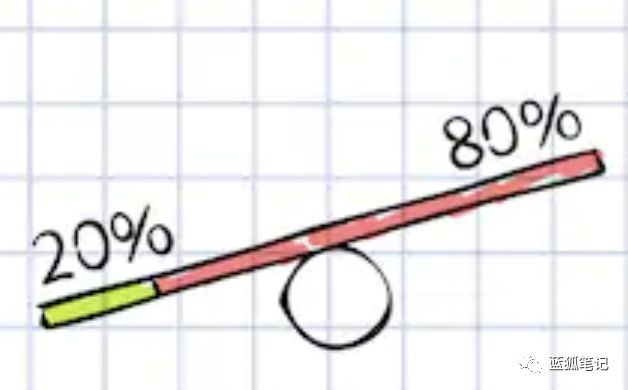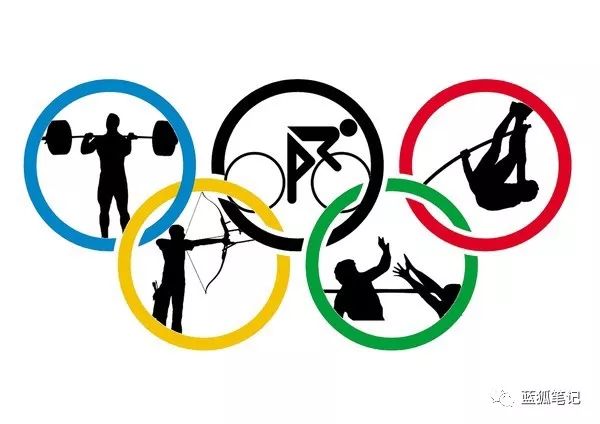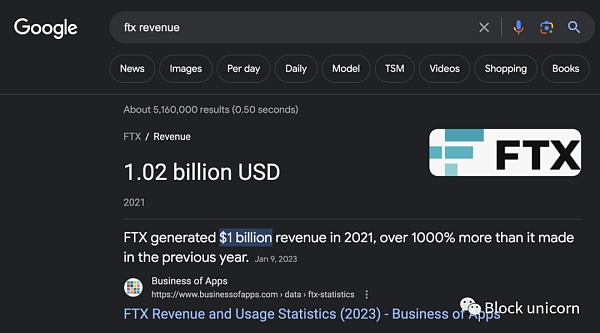Decentralized Governance: What is the best blockchain governance?
History has been filled with failed governance attempts. The main purpose of governance is to create an environment in which humans can prosper and compete fairly. The main threat to all governance systems is the minority's control of the majority or any system that creates an unfair competitive environment. A level playing field is like a seesaw that balances a point. Once it starts to tilt, it will get a positive feedback loop and accelerate the tilt until it is completely out of balance.

The key to maintaining a fair environment is to have multiple balance points to support and ensure that no one is stronger than the other. It needs to create a negative feedback loop to restore balance over time.
Anarchists want a world without government, and no one has a world in which everyone needs to abide by the law. And such a world can exist only when everyone can defend their own interests. Volunteers recognize that “consensus government” is useful, with the main purpose of developing non-violent solutions for the government. (Blue Fox Note Translator's Note: From Locke's political theory, under the economic liberal political structure of the 19th century, the government is a civil society, established by the "people's consensus", the government needs to provide freedom under the law and protect the people.) After the world is fully realized, sanctions are used to separate people from society, and anyone who ignores sanctions will be punished (expelled).
- Bitcoin is a black hole, and the legal currency of these six countries has been swallowed up.
- Babbitt Column | Thinking about the meaning of blockchain from the perspective of reducing transaction costs
- CCF Blockchain Committee S Xueming: In the next three years, the blockchain will be widely distributed in the real economy.
The challenge for a voluntary society is that there are always people who are willing to use violence and sanctions, which can force those who are sanctioned to resort to violence as a means of survival. In other words, sanctions (or repelling) are a good way to regulate the community, but it is good for the benefit of society only if many peaceful communities (countries) are willing to accept those who are sanctioned (expelled) by other countries. Imagine if the United States decided to solve its prison problem by expelling prisoners? If no other country is willing to accept these prisoners, what happens next?
Joining a community is very valuable, but joining any community requires adherence to the rules of the community. A community without rules is like a wild land that follows the laws of the jungle and loses its identity as a community. If we build a community and build rules for it, then we will enter into joint decision making and need to reach consensus. This is the core of the governance challenge.
There is a problem of overall social coordination, in which personal interests act in a way that harms the interests of the community. For example, if there is a market, we can have a lot of food to choose from, which is good for everyone; but if one party can sell at a price lower than all other parties, then the party will eventually get a natural monopoly.
Once this party monopolizes food production and everyone else in the society loses bargaining power, then this party will have unprecedented bargaining power in the market. If you don't do what they say, they can cut off your food supply.
Therefore, regardless of price differences, it is in everyone's interest to ensure that there are many competing food suppliers in the market. The number of suppliers should be large enough that they cannot collude effectively, and all members of the community can find the person who sells the food.
If everyone always chooses the cheapest provider, then all other providers will go bankrupt and everyone will have no choice. Unless there are enough people working together to pay a higher price, other suppliers will fail.
In this context, this is the decentralization required for community governance rules. By their very nature, these rules will have to interfere with voluntary transactions for personal benefit. That is to say, if there are reasonable assurances that these rules can be enforced, it is in everyone's interest to voluntarily agree to these rules.
What we are experiencing now is that we have proven that the community needs rules that inevitably lead individuals to give up some freedom to prevent everyone from losing their personal freedom. This brings us to the challenge of deciding what these rules are and preventing the system from being captured by private interests. As in the case of the food market, society needs to ensure that governance is decentralized rather than belonging to a minority.
I have always believed that in order to escape the law of the jungle, mankind must build a peace treaty. This peace treaty provides for property ownership and dispute resolution rules. Ultimately, this peace agreement will be the foundation of all governance services.
A part of the peace agreement is the means by which the entire society makes a common decision. However, if a few people can choose the decision-making process, they can control the majority, and most people think that they should recognize the existing peace treaty, instead of risking returning to the jungle law and civil war. Therefore, it is essential that no matter what kind of treaty we use, it should not be permanently captured by a few people, and the process requires constant decentralization pressure.
Existing public governance failure
Popular elections voted for the democratic system of law to try to maintain the decentralization of control. It assumes that the masses will never choose those who continue to violate their interests. You can think of democracy as PoP (Proof-of-Popularity) (Blue Fox note: it means "welcome proof", that is to say The more popular people are, the easier it is to become a representative.)
The theoretical basis of the above statement is that anyone can run for public office and have the ability to make good ideas. At the same time, the smart and critical public will choose them. Assuming that most people are honest, it is reasonable to assume that a committee, Congress, or other individual group will fulfill the will of the people.
However, research shows that regardless of how popular or unpopular a particular policy is, the probability of becoming a law is the same. In other words, there is no correlation between the will of the people and the peace treaty, and they will eventually be forced to accept or return to the jungle rules.
Politician's choice bias
Democracy can be observed through the Pareto principle. The Pareto principle observes that in many areas of life, 80% of the results are achieved through 20% of the effort. In other words, the influence of 20 people exceeds the sum of the other 80 people. This is a recursive principle, and among the 20 people, 4 of them have greater influence than the other 16 people. Among the 4 people, the first person has more influence than the other three.

This distribution rule applies to everything from urban population, wealth, and celebrity popularity. It also applies to the distribution of natural talent in any industry. Not everyone can be a star athlete, the best player, the best, the most popular. Only a few people can reach the peak of their professional field. The same applies to politicians.
The skills required to be promoted as politicians are very different from the skills required to make good governance decisions. In many cases, the best governance decisions are the exact opposite of the best political decisions.
Society has established a way to rank our leaders and reward those who are sleek, who are good at telling what we want to hear. This is not a system that rewards honesty and motivates manipulation. Once a politician is in power, maintaining power is often achieved through education, division, and so on.
The theory of democracy is completely inconsistent with the reality of the skills required to win the game. The only solution is to design a new selection criteria. This means designing a new competition model that will make the best, brightest and most honest people stand out. Of course, any system design must take into account that someone will violate the rules to win. For example, manipulation of elections, bribery, etc.
Imagine how people would react if society was ruled by only the best fighters. There have been many scenes in the TV series, how the king was finally elected by fighting death. Under such a system, there is no chance for weakness and weakness. The strong culture will favor those who are strong, awkward and healthiest, and will not favor those who have empathy and care for others.
Although this method of governance is outdated, we have instead established a new system that will benefit different types of fighters using another different weapon. We are still in a society ruled by a handful of people who are good at all kinds of battles. Have good appearance, propaganda, and political strategy, not the previous brute force, weapons, and battlefield strategy. We no longer obey those who physically rule others, and we obey those who govern others spiritually and emotionally through storytelling.
Design a new governance system
I do believe that most people are kind and honest. In the process of random sampling of the crowd, you will find that dishonest people will fail, and the laws passed often represent what is truly popular. This is direct democracy through random sampling rather than full sampling. Any statistician will tell you that the results will be the same, assuming that the law requires a statistically significant voting difference, and the sampling is truly random.
The main problem with random sampling is that most people don't actually want to manage others and have no time/willingness to participate in management. This means that the results will still be biased towards the desire of power and away from those who are willing to be alone. Over time, this bias can cause the system to be destroyed, further manipulating the power hunger by manipulating “random sampling” that is difficult to audit.
Random sampling allows the "mass" to control management, but the reality is that the "mass" does not really control themselves. Their decisions are actually controlled by a small number of people who are good at propaganda. Sadly, because of ignorance or false information, most people vote in ways that are against their best interests. Thus, although direct democracy through random sampling will follow the “people's will” more closely, the “people's will” may not actually be their will.
If there is another way to take “random sampling” from society to better filter below-average quality, and there is no vulnerability to random corruption.
Best public governance
If we are able to pick the best and brightest people instead of being biased towards those who are good at manipulating? The solution I believe is to use a large number of competitive games that require a wide range of skills and/or genetic predispositions. Today, we only use a competitive game to win votes by deceiving or offering.
But what if we have a variety of other competitive games? And what are the winners on the objective criteria? Just like the Olympics, chess, typing, poker, StarCraft, racing, memory, spelling and other competitions? If some indicators are "the largest land holder", or "the largest single gold holder" and so on. We can even hold a lottery that verifies the fairness to randomly select some people.

The key part is that there should be 1000 different competitive games, different talents, and different skills. If you are not a good politician, you can still get a public office. Suppose you can invest time and energy and become the best in every field in 1000 different fields.
Once you have selected 1000 good people in different fields, the consensus of governance needs to reach 2/3 majority consent.
In order to prevent lifelong and elite clubs, everyone can only serve for a limited time. Therefore, if the fastest person has completed the TA's term or does not want to participate, you do not have to be the fastest person. This opens up access to governance for the top 10 or more people in each competition category.
The added benefit of this approach over democratic methods is that those who enter the government do not owe the donor's personal feelings and are not affected by media attacks. Those in power must work hard to be the best, and the result will naturally be biased towards the policies of those who work hard. They will understand that today's sacrifice is for future development. They are free to use their conscience and wisdom, rather than blindly catering to the masses.
Most importantly, these people will come from all walks of life and will represent a wide range of social classes. It will break the link between wealth, fame and political relations and lower the threshold for entering the government.
The key to governing decentralization is to keep open to newcomers and avoid creating barriers to entry for any single minority.
Blockchain governance
When it comes to managing blockchains, you need to apply the same rules. Whether it's PoS or PoW, any single metric will eventually be dominated by a few who are best at this metric. This is why blockchains should be governed by many different types of proofs, such as proof of work, proof of destruction, proof of entitlement, proof of personnel, proof of location, etc. More Pareto distributions and more independent distributions will make the network more decentralized.
Based on any single metric (Proof-of-x) metric, the blockchain will be centralized, regardless of how the person's propaganda system is central to the control. What's important is that we have to maintain this ability: to distinguish the difference between true decentralization and decentralization.
Only through decentralization of true governance can the community formulate and implement the necessary joint decisions to save humanity from the prisoner's dilemma. Only through open access and objective competition can we push the society forward without being corroded by the inside.
Risk Warning : All articles in Blue Fox Notes can not be used as investment suggestions or recommendations . Investment is risky . Investment should consider individual risk tolerance . It is recommended to conduct in-depth inspections of the project and carefully make your own investment decisions.
Editor's Note: The original title is: Decentralized Governance
We will continue to update Blocking; if you have any questions or suggestions, please contact us!
Was this article helpful?
93 out of 132 found this helpful
Related articles
- Should India ban cryptocurrencies? Some officials resigned and the central bank was even charged
- Grassroots victory, Bitcoin became the 11th largest currency in the world
- Insurance giant Allianz develops a pass-based electronic payment system to streamline cross-border payment processes for corporate customers
- The first anniversary of the blockchain winter, I took the zero coin
- Research Report | The central bank will talk about legal digital currency, and the blockchain industry is expected to benefit?
- I read why the SegWit adoption rate of Litecoin is higher than Bitcoin.
- Standard Chartered Bank uses the blockchain platform Voltron to complete the first international letter of credit transaction






